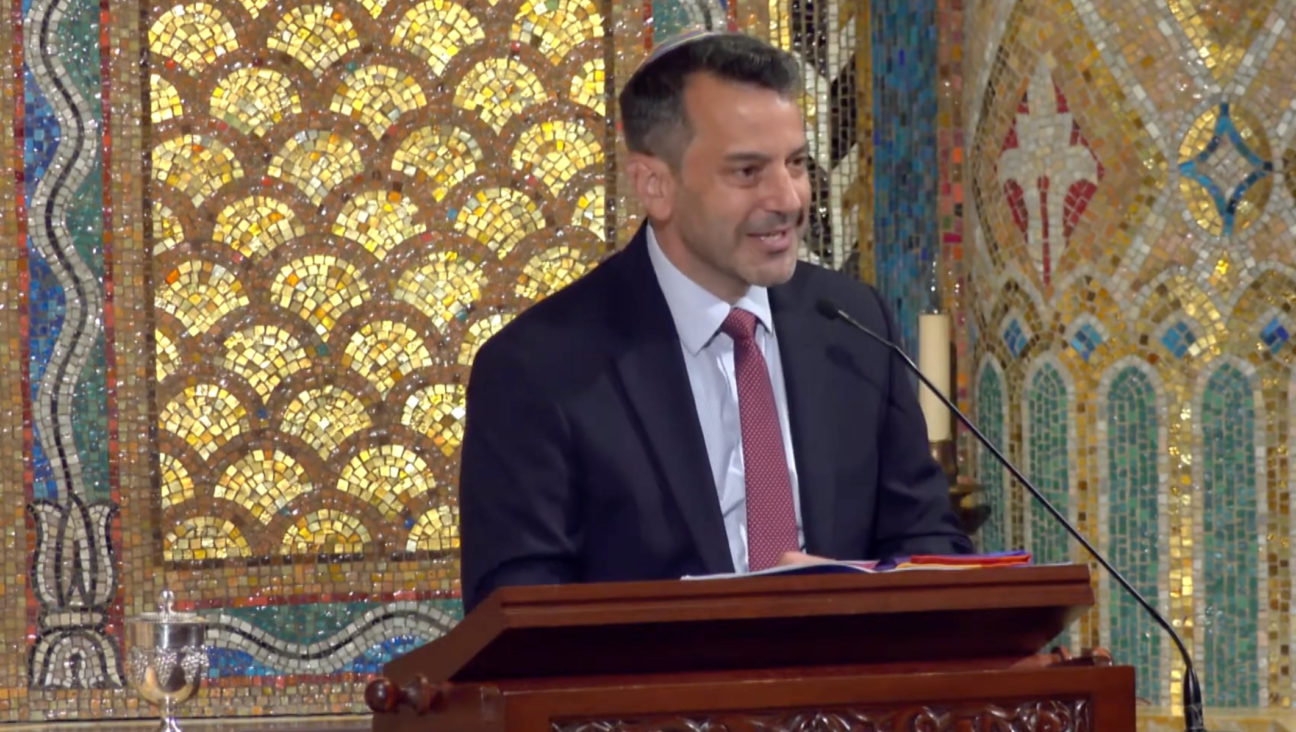You’re the Rabbi; What Would You Do?

Image by Thinkstock
When traditional Jewish law, or Halacha, hampers observance for congregants with disabilities, rabbis face tough questions. At a recent conference, Orthodox rabbinical students in Manhattan grappled with disability-related dilemmas.
What would you decide? Step into the rabbi’s shoes and let us know what you think in the comments section.
Question 1 Your impoverished and shrinking synagogue has 10 steps up to the entrance. You don’t know that you have any congregants who can’t climb steps, and you’ve already taken a pay cut of 10% this year after Hurricane Sandy damaged the building. You’re the rabbi; what do you do?
Click here to read “What Happens When Jewish Law Hampers the Disabled?”
Question 2 Yehezkel, 24, is a yeshiva graduate who served in the U.S. Army in Afghanistan, where his jeep hit a mine and he suffered several injuries — including the amputation of his left arm, upon which he would normally put his tefillin. He asks to see a Jewish chaplain and asks, “Rabbi, I want to put tefillin on again. What do I do?” You’re the rabbi; what do you say?
Question 3 Your blind congregant Maureen brings her seeing eye dog into the synagogue. There is a stir in the men’s section and one of your congregants comes over to protest, saying, “An animal is muktzeh, rabbi. I understand that Maureen needs her service dog to get around, but does he have to come in where the aron kodesh is?”
The next day, you call Maureen to discuss how the synagogue can be of help to her. You intend to bring up the issue of the dog. Before you get to it, she says, “Rabbi, I’m so glad you asked me to come in. You know that I lost my vision later in life and I never learned Braille. Shabbat is a long, lonely day for me. Once in a while someone comes for a visit but it’s very hard. Is it permissible for a visually impaired person to use a computer or radio on Shabbat to help provide auditory stimuli so she does not become depressed?”
You’re the rabbi; what do you do?
These situations were adapted from cases presented at a conference for rabbinical students at Yeshivat Chovevei Torah.
A message from our Publisher & CEO Rachel Fishman Feddersen

I hope you appreciated this article. Before you go, I’d like to ask you to please support the Forward’s award-winning, nonprofit journalism so that we can be prepared for whatever news 2025 brings.
At a time when other newsrooms are closing or cutting back, the Forward has removed its paywall and invested additional resources to report on the ground from Israel and around the U.S. on the impact of the war, rising antisemitism and polarized discourse.
Readers like you make it all possible. Support our work by becoming a Forward Member and connect with our journalism and your community.
— Rachel Fishman Feddersen, Publisher and CEO























